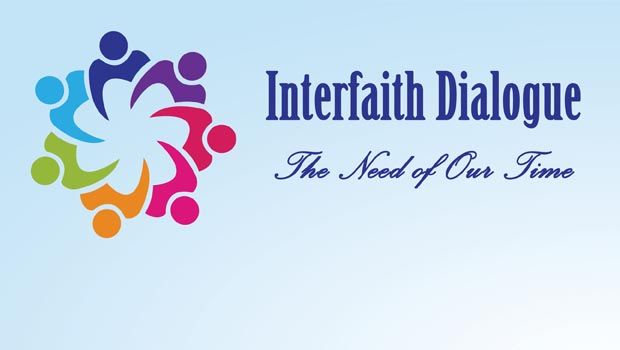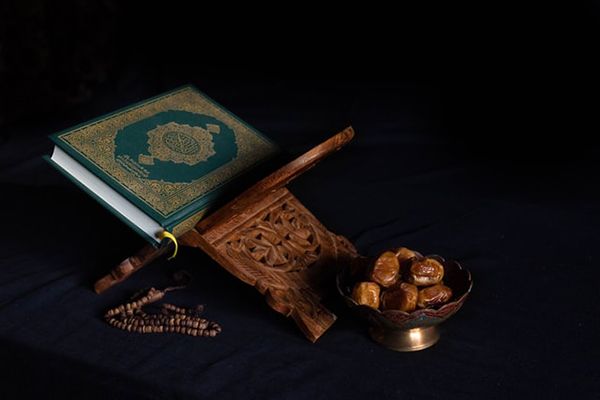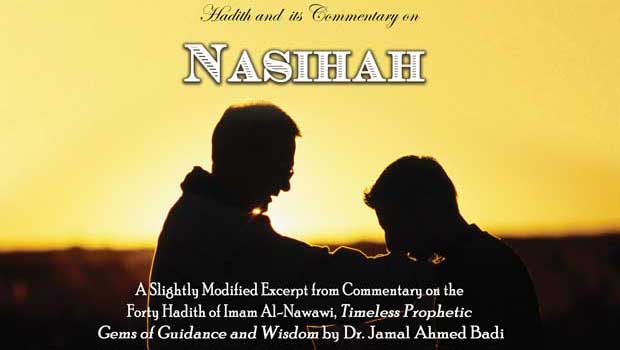Before the tragedy of 9/11, many American Muslims were opposed to interfaith dialogue, thinking that it would compromise their faith. Thus in 1985 when Imam Ihsan Bagby and I, along with Rabbi John Stein and Rev. Jerry Zehr, started Interfaith Alliance in Indiana, Muslims hesitated to participate. After 2001, perception of interfaith initiatives changed. More and more mosques saw the need and interfaith committees were formed. In addition, a number of interfaith organizations emerged. We held our first interfaith iftar (breaking fast at the end of the day in Ramadan) at ISNA mosque in Plainfield, Indiana in 1990. Now it has become an annual tradition at the White House, State Department, and the Pentagon, as well as iftars being hosted by governors and mayors.
Why dialogue with others?
The interfaith movement is an opportunity to engage with adherents of other religious traditions in positive ways, to share one’s faith, and to celebrate the various holidays. And particularly for Muslims nowadays, it is an excellent way to dispel myths and misunderstandings about Islam. Quran encourages interfaith dialogue with the verse, “Invite all to the way of your Lord with wisdom and beautiful preaching; and engage with them in ways that are best and most gracious” (16:125).
Why engage with People of the Book (Jews and Christians)?
Interfaith engagement, especially with the People of the Book, is a way to build understanding, find commonalities of belief and social responsibility, and encourage one another in faith and good works.
“ Say [O Mohammad]: O people of the book, come to a common understanding between us and you, that we shall worship no one except One God that we shall take no partners with Him and none of us shall take others for Lord beside One God” (Quran 3:64).
It was a Christian priest, Waraqah, cousin of Khadija (Prophet Mohammad’s first and only wife for 25 years) who first testified that Prophet Mohammad (p) had received divine revelation. And a Christian king, Najashi of Abyssinia (Ethiopia), gave asylum to 80 Muslims who migrated from Mecca because of persecution by pagan Arabs. In fact, the Quran says, “…nearest among them in love to the believers will you find those who say, ‘We are Christians’ because among these are men devoted to learning and men who have renounced materialism, and they are not arrogant” (5:82).
When a delegation of Christians from the Roman Empire visited Prophet Mohammad, he invited them to stay in his mosque and allowed them to pray there according to their traditions. In 628 AD he granted a charter of privilege to the monks of St. Catherine Monastery in Mt.Sinai to assure them of their rights as a Christian minority. The charter is very significant in demonstrating the respect and tolerance of other faith communities as exemplified by the Prophet (p):
“This is a letter from Mohammad ibn Abdallah, as a covenant to those who adopt Christianity. We are with them, they are my citizens, we will defend them.
- No compulsion is to be on them.
- Neither their judges to be removed from their jobs nor their monks from their monasteries.
- No one is to destroy their house of worship, or to damage it, or to take anything from it to a Muslim’s house.
- No one is to force them to fight (for Muslims). Muslims are to fight for them.
- If a Christian woman is married to a Muslim man, it should not take place without her approval. She is not to be prevented from attending her church to pray.
- No one from my nation is to disobey this covenant till Last Day.”
As mentioned above, interfaith dialogue is an excellent way to dispel myths and misunderstandings about Islam. I address 25 of them in my booklet, “Healing the Wounds of September 11,” and the booklet can be used by those who engage in dawah, in interfaith initiatives and activities, and by individual Muslims who have non-Muslim family members who raise questions or seek better understanding of Islam and Muslims. Following, as example, are five of the points covered in the booklet:
Shariah law: It is the Islamic legal, moral, and spiritual code covering not just prayer and fasting but all aspects of a Muslim’s life. Shariah is by no means limited to criminal justice or the fixed punishments for serious crimes.
Retaliation and vengeance: Prophet Mohammad (p) did not order killing of anyone who opposed, insulted, or persecuted him or his followers. Nor did he seek to humiliate or get revenge, even at times of triumph. Most of the battles he participated in were defensive, when Muslims were attacked by unbelievers
Treatment of women: Men and women are equal in all acts of piety (Quran 33:35) and they receive the same punishment for any particular crime. The oppression of women was rampant in the pre-Islamic culture. Islam opposed the degradation of women and instituted measures to elevate them to their rightful status and value in society. Their confinement to the home started with the colonization of Muslim lands, a practice which was later continued by Muslim kings and tribal leaders.
The sanctity of human life: “If anyone has killed [without authorization, sanction, or justification] one person, it is like he has killed the whole of mankind” (5:32). Accordingly, terrorism has no place in Islam. Addressing legitimate grievances of Muslims who are victims of political tyranny, imperialism, or colonialist occupation is imperative. But terrorist reactions are not the proper Islamic way to advance the cause of social justice and political freedom.
Jihad: Prophet Mohammad said “The highest level of jihad is conquest of self (against evil temptations and all egotistic inclinations of the lower self).” Jihad means, literally, “struggle” and in common usage it means any and all ways necessary to struggle in the way of Allah. While this includes military struggle, when necessary, against persecution or oppression, the misnomer “Holy War” lends a warring and fanatic connotation to the word “jihad” that does not accord with its linguistic and doctrinal meaning. Also encompassed by the meaning of “jihad” is the inner struggle of each individual to overcome the inclinations of the lower self and its base desires.
In addition to the importance of educating ourselves to be knowledgeable and articulate in dispelling the myths and misunderstandings about Islam whenever we have the opportunity to do so — and one of the best opportunities is during interfaith dialogue — we also have to be mindful of presenting ourselves and our arguments with “wisdom and beautiful preaching” and to engage “in ways that are best and most gracious.” Below are some guidelines of effective engagement in interfaith dialogue:
Show respect and tolerance of others at all times. Each person has the right to his/her belief and religion. “Let there be no compulsion in religion” (Quran 2:256). Respect others’ beliefs as you expect them to respect yours. Quran forbids Muslim to deride a non-Muslim’s religion or belief system.
Do your best to remove prevailing misconceptions about Islam and Muslims.
Share your faith but never compromise your beliefs by skewing, diluting, or distorting your presentation in order to win points with those you are speaking to.
Look for common ground as humans and as believers in God and religion. All the concerns of the contemporary world, including the scourge of terrorism by states or rogue groups, climate change, political corruption, the moral decadence of youth culture, and countless other issues, are common concerns of all faith communities.
Pay particular attention to the common goal of all faiths which is to serve the needs of those who have been given less, who are disadvantaged, suffering, or oppressed. Find ways to cooperate in utilizing the group’s resources such as wealth, knowledge, compassion, and piety to serve society and work to bring greater social justice. Collaborate as faith communities determined to leave all our children a better world, filled with love and compassion rather than hatred and apathy.
Closing a Session with Prayer
Sessions of interfaith dialogue should be concluded with faith-based inspiration and mutual appreciation. The two following prayers can be used:
Prayer of Prophet Muhammad (p):
“O Allah! Put affection in our hearts, set right the matters between us, guide us to the ways of peace, save us from the darkness [and turn us] towards the light; save us from all kinds of indecency, the apparent as well as the hidden; and bless our hearing, our seeing, our hearts, our spouses, and our children; and turn in mercy upon us. Indeed, You are the One who greatly accepts repentance, One who is repeatedly Merciful.”
Prayer of St. Francis of Assisi:
“Lord, make me an instrument of Your peace, where there is hatred, let me sow love; where there is injury, pardon; where there is doubt, faith; where there is darkness, light; where there is sadness, joy. O Divine Master, grant that I may not seek to be consoled as to console; to be understood as to understand; to be loved as to love. For it is giving that we receive, it is pardoning that we are pardoned, it is dying that we are born to eternal life.”
On March 22, 2013, Pope Francis urged Catholics to engage in dialogue with Islam, and said “The role of religion is central to peace. We should engage in service to the poor and not in mutual rivalry.” As Muslims, we should respond actively to this positive initiative and show our appreciation for his outreach.






